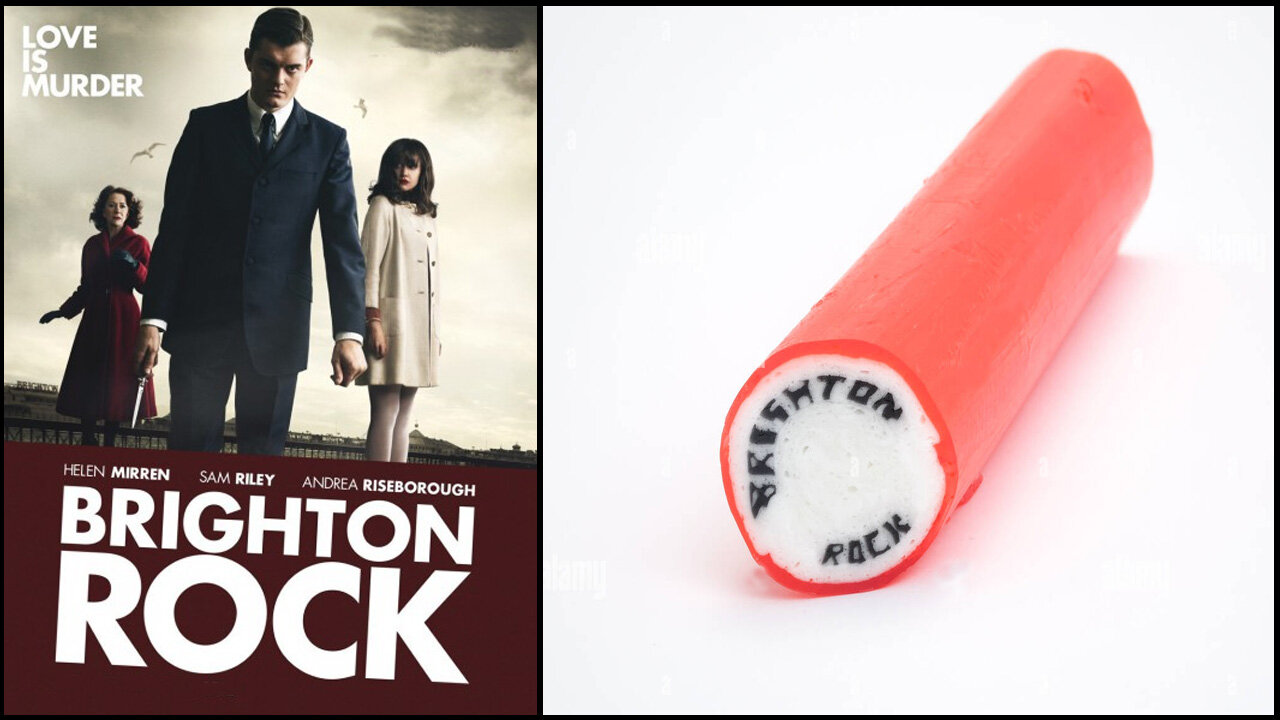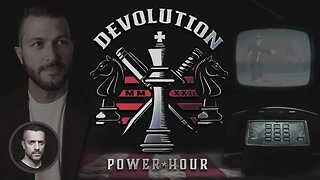Premium Only Content

'Brighton Rock' (1999) Movie of the Book by Graham Greene
This adaptation of 'Brighton Rock', directed by Rowan Joffé, attempts to bring Graham Greene’s 1938 novel to a modern audience. While visually striking and boasting strong performances, the film struggles to capture the novel’s deep existential themes and moral complexity, ultimately feeling more like a stylish crime drama than a truly faithful adaptation.
Plot Summary: Set in 1964 (rather than the novel’s original 1930s setting), 'Brighton Rock' follows Pinkie Brown (Sam Riley), a young, ruthless gangster trying to climb the ranks of the Brighton underworld. After a violent murder, he manipulates a naive waitress, Rose (Andrea Riseborough), into silence by seducing her, while the determined Ida Arnold (Helen Mirren) becomes suspicious and seeks justice. As Pinkie’s paranoia and violence escalate, the story hurtles toward its bleak and tragic conclusion.
Strengths: Performances and Atmosphere: One of the film’s strongest aspects is its performances. Sam Riley delivers a chilling portrayal of Pinkie, capturing the character’s brooding menace and barely restrained rage. Andrea Riseborough brings a quiet vulnerability to Rose, making her tragic arc all the more affecting. Helen Mirren’s Ida Arnold is a standout, adding gravitas to the role of the amateur detective who refuses to let evil go unchecked.
Visually, the film is stunning, with cinematographer John Mathieson crafting a moody, noir-like aesthetic. The decision to shift the setting to the 1960s allows for striking imagery of Mods and Rockers clashing on Brighton’s seafront, reinforcing the themes of youthful rebellion and social change. The film’s soundtrack and use of period detail create a vivid atmosphere that immerses the audience in its world.
Weaknesses: Thematic Depth and Faithfulness to Greene
While the film succeeds in mood and tension, it falters in translating the novel’s deeper Catholic themes of sin, redemption, and damnation. Greene’s Brighton Rock is not just a crime thriller—it’s a meditation on morality, free will, and divine justice. The 1947 adaptation, starring Richard Attenborough, better captured this philosophical undercurrent, while the this version leans more toward surface-level noir stylization.
By updating the setting to the 1960s, the film loses some of the social and political anxieties present in the original. The 1930s Brighton of the novel is a world in decay, where crime and Catholic guilt intertwine. The 1960s backdrop, while visually compelling, feels less integral to the story’s existential concerns.
Final Verdict: 'Brighton Rock' (1999) is an admirable attempt at reimagining Greene’s novel with a fresh visual style and strong performances. However, it lacks the thematic weight and moral complexity that made the book (and even the 1947 film) so powerful. While it works as a moody crime thriller, it doesn’t fully do justice to Greene’s exploration of damnation and grace.
-
 8:10
8:10
MattMorseTV
12 hours ago $4.91 earnedDemocrats caught COLLUDING with Epstein.
6.98K22 -
 LIVE
LIVE
Lofi Girl
3 years agolofi hip hop radio 📚 - beats to relax/study to
434 watching -
 43:24
43:24
ThisIsDeLaCruz
1 day ago $4.04 earnedWhat Fans Never Knew About Falling In Reverse’s Guitarist
15K -
 14:57
14:57
The Pascal Show
1 day ago $0.04 earnedTHIS IS INSANE! Megyn Kelly SLAMMED For Questioning Whether Epstein Was a P*dophile?!
67 -
 55:46
55:46
PandaSub2000
1 day agoBeyond Good & Evil | ULTRA BEST AT GAMES (HD Edited Replay)
31.1K3 -
 1:53:29
1:53:29
Badlands Media
21 hours agoDevolution Power Hour Ep. 407: Purity Tests, Psyops & the MAGA Identity Crisis
204K32 -
 2:31:03
2:31:03
Tundra Tactical
10 hours ago $11.33 earned🚨🚨LIVE AT 9PM CST!!! The Worlds Okayest Gun Show - 2A Mad Libs and Apocalypse Draft Night
35.9K1 -
 6:30:44
6:30:44
SpartakusLIVE
13 hours agoI’M BACK || ONLY Solos on WZ - NO BLOPS7, NO REDSEC, NO ARC, NO FRIENDS
134K2 -
 2:03:42
2:03:42
The Connect: With Johnny Mitchell
14 hours ago $8.92 earnedAmerican Vigilante Reveals How He Went To WAR Against The WORST Cartels In Mexico
16.6K2 -
 2:40:59
2:40:59
BlackDiamondGunsandGear
7 hours agoITS MA'AM!! / After Hours Armory / Are you threatening me?
24.1K4